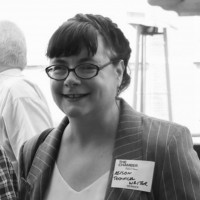 This spotlight article features Alison Edwards, a grant writer and the founder of Edwards Technical Writing, a technical writing business that specializes in grant proposals, business proposals, business plans, scientific writing, and much more.
This spotlight article features Alison Edwards, a grant writer and the founder of Edwards Technical Writing, a technical writing business that specializes in grant proposals, business proposals, business plans, scientific writing, and much more.
What was your path to becoming a technical writer?
I started off as an aquatic ecologist. My M.Sc. (Master of Science degree) research focused on concentrations of heavy metal contaminants in a commercial rockfish species, and the influence of biological factors. During graduate school, I volunteered to review environmental assessment documents on a large mining project, for a local environmental organization. These environmental assessments — large, complex documents — ignited my interest in technical writing. After graduate school I was hired as a writer for an environmental assessment task team in Calgary.
What made you want to start your business and get into grant writing?
When global oil prices fell and the economy of Alberta shrank considerably, I was laid off. I then completed a certificate in technical writing at Mount Royal University. With this certification, combined with my M.Sc. and industry experience, I decided to start my own business.
Numerous friends and people I had worked with were asking me for help with writing. For example, I helped a friend get published in a medical journal. I recognized the value of good writing skills, and that people are willing to pay for this skill. Now I help small companies and non-profits write grant proposals and businesses proposals.
After I completed extra training to prepare grant proposals, this immediately became my favourite type of writing. I like working with complex documents. For example, grant proposals begin with the background, then the objectives, and then you move through more specific sections. You’re dealing with a lot of the same information, but with a slightly different purpose. You need to present the information differently in each section, while maintaining consistency and correctness. These are all conventions associated with grant writing that I really enjoy.
One of the pleasures of grant writing is working with social-impact organizations. It’s like using a superpower for good when you help them achieve their funding goals and outcomes!
How does your science background help in your current work as a technical writer?
Scientific writing, particularly with regard to biology, is very similar to technical writing, because both need to be clear and unambiguous. I read a lot of scientific materials during my education, which was great training for technical writing. As a writer you have to read and work with a lot of complex documents.
Even when I was a teaching assistant, a lot of the instruction was teaching undergrads to write clearly, so when you’ve been in post-secondary education for a long time, you’ve had a lot of opportunities to practice your writing.
What’s the hardest part of having your own business?
For me, it’s the amount of time I spend not writing, because there’s a lot of administrative stuff to keep up with. It’s really important not to let that part drown out the writing part. You never truly work alone as a technical writer because you are working with clients, but the actual business is something I have to manage on my own.
What’s the most interesting project you’ve worked on as a technical writer?
It’s not so much a specific project, but rather, being able to work with a variety of clients. I’ve worked for science-based organizations, clients in the wellness sector, the cannabis industry, the arts, and so on. There are always many reasons for needing a technical writer.
